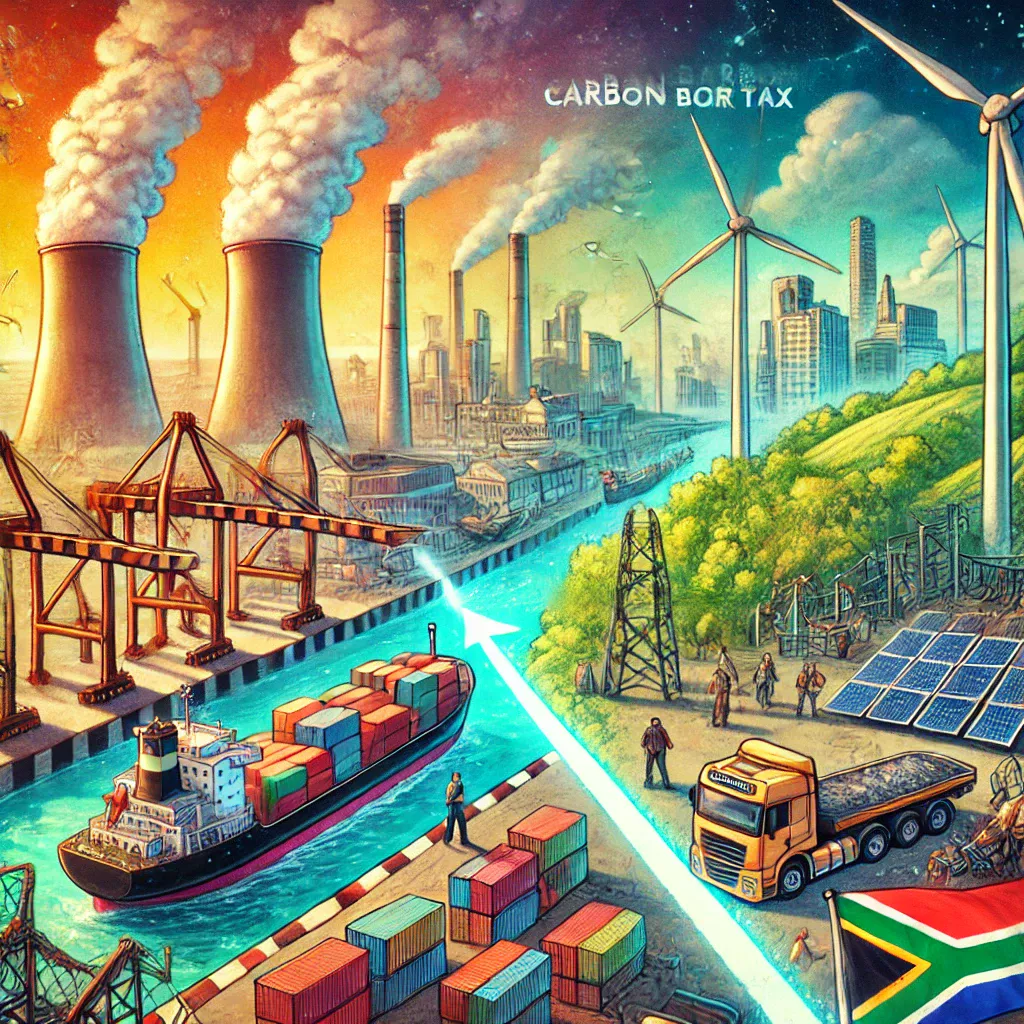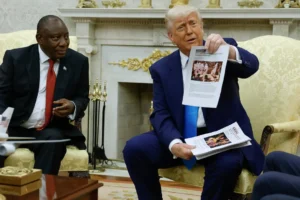
Carbon Border Tax: South Africa’s Stand Against Deepening Inequality
Introduction
The recent article on Polity.org.za discusses South Africa’s critique of the United Kingdom’s proposed carbon border tax, arguing that it could exacerbate existing inequalities between developed and developing nations (Polity, 2024). This scholarly article aims to analyze South Africa’s position, contextualize it within broader global environmental and economic policies, and explore the implications of such a tax on international inequality.
Context and Background
The concept of a carbon border tax has gained traction as countries strive to meet their climate goals while maintaining economic competitiveness. A carbon border tax imposes tariffs on imported goods from countries with less stringent carbon emissions regulations. Proponents argue that it levels the playing field and prevents “carbon leakage,” where businesses relocate to countries with looser environmental standards. However, critics argue that it can deepen economic disparities between the Global North and South (Cosbey et al., 2019).
South Africa’s Position
South Africa’s response to the UK’s carbon border tax is grounded in its socio-economic context. As a developing nation heavily reliant on coal for energy, South Africa faces significant challenges in transitioning to a low-carbon economy. The government argues that imposing a carbon border tax would unfairly penalize its exports, leading to economic hardship and increased inequality (Polity, 2024). This stance aligns with the broader argument that climate policies should consider historical emissions and the developmental needs of poorer nations (Najam et al., 2003).
Economic and Environmental Implications
A carbon border tax could have severe economic repercussions for South Africa. The country exports significant quantities of goods, such as minerals and metals, to the UK and other developed nations. Imposing tariffs on these exports could reduce their competitiveness, leading to job losses and economic decline in key sectors (Venter, 2020). Additionally, the cost of compliance with carbon regulations might be prohibitive for many South African businesses, exacerbating economic inequalities within the country.
Environmentally, while the tax aims to reduce global carbon emissions, it may lead to unintended consequences. Developing nations might prioritize economic survival over environmental considerations, potentially leading to more localized environmental degradation as they seek alternative markets with fewer restrictions (Pauw, 2017).
Global Equity and Climate Justice
The debate over the carbon border tax is emblematic of the broader tension between climate action and economic justice. Developed nations, having historically contributed the most to global carbon emissions, bear a moral responsibility to support developing nations in their transition to sustainable economies (Roberts & Parks, 2007). Policies like the carbon border tax risk shifting the burden of climate action onto those least equipped to bear it.
Conclusion
South Africa’s critique of the UK’s carbon border tax highlights the complex interplay between environmental policies and global economic inequality. While aimed at mitigating climate change, such taxes must be carefully designed to avoid exacerbating existing disparities. A more equitable approach would involve significant financial and technical support from developed nations to assist developing countries in their green transitions.
References
Cosbey, A., Droege, S., Fischer, C., & Reinaud, J. (2019). Developing Guidance for Implementing Border Carbon Adjustments: Lessons, Cautions, and Research Needs from the Literature. Review of Environmental Economics and Policy, 13(1), 3-22.
Najam, A., Huq, S., & Sokona, Y. (2003). Climate negotiations beyond Kyoto: developing countries’ concerns and interests. Climate Policy, 3(3), 221-231.
Pauw, P. (2017). Climate finance from the recipients’ perspective: cases from sub-Saharan Africa. International Environmental Agreements: Politics, Law and Economics, 17(4), 575-593.
Polity. (2024, July 16). South Africa tells UK carbon border tax will deepen inequality. Polity.org.za. Retrieved from https://m.polity.org.za/article/south-africa-tells-uk-carbon-border-tax-will-deepen-inequality-2024-07-16.
Roberts, J. T., & Parks, B. C. (2007). A Climate of Injustice: Global Inequality, North-South Politics, and Climate Policy. MIT Press.
Venter, R. (2020). The impact of trade policy on South African industry. South African Journal of Economics, 88(1), 1-15.



